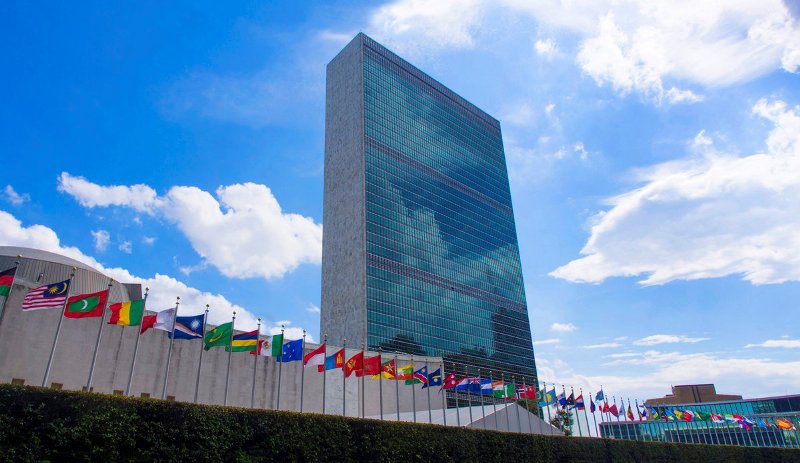Eight member states of UN Security Council issue joint statement on Georgia
The situation in Georgia after the August 2008 war was discussed at a closed session of the UN Security Council. Assistant-Secretary-General Miroslav Jenča delivered a report. The meeting was held in an online format, attended by representatives of Belgium, Estonia, France and Germany, the United States and the United Kingdom, as well as representatives of the new members, Norway and Ireland.
After the session, a joint statement on Georgia was issued by Belgium, Estonia, France, Germany, the United States, the United Kingdom, Norway and Ireland.
The statement reads as follows:
“This week marks 12 years since the beginning of the conflict between Russia and Georgia on 7 August 2008. Today the Security Council heard a briefing by Assistant-Secretary-General Miroslav Jenča (DPPA), and discussed developments since then. We remember those who died and those who lost their homes, and regret that little progress has been made towards resolving the conflict since concluding the Agreements of 12 August and 8 September 2008. We firmly support Georgia’s independence, sovereignty and territorial integrity within its internationally recognized borders.
The continuing Russian military presence in the Georgian regions of Abkhazia and South Ossetia as well as Russia’s recognition of the so-called independence of these regions violates the territorial integrity of Georgia and undermines Georgia’s sovereignty, as well as the Rules Based International Order. It further divides communities and puts at risk the health and lives of the conflict-affected population. We are extremely concerned about the intensification of the so-called “borderisation process” over the past year, including during the global COVID-19 pandemic. Throughout this already challenging time, the de-facto authorities exercising effective control over the Georgian regions of Abkhazia and South Ossetia have continued the practice of arbitrary detentions along the Administrative Boundary Lines. De facto South Ossetian authorities have repeatedly denied emergency medical evacuations and incoming humanitarian aid. We are also concerned about the ongoing disinformation campaign by Russia about the pandemic and related health issues as well as false propaganda about the life-saving work of the Lugar Center.
These acts prolong the conflict, threaten peace and stability, interfere with the enjoyment of human rights and fundamental freedoms, and negatively impact the health and safety of people across Georgia, destabilizing the region as a whole. Today we call again on the Russian Federation to fully implement her obligation and commitments under the Agreements of 12 August and 8 September 2008. The Six Point Agreement of 12 August includes an obligation by Russia to withdraw its armed forces to positions held before hostilities began. The ceasefire agreement also committed the parties to establish an international security mechanism.
We reiterate our support for the respect and protection of human rights, including the rights of forcibly displaced persons, as well as the importance of enabling their safe, voluntary, dignified and unhindered return to their homes in accordance with international law. The topic of refugees and internally displaced persons (IDPs) remains a core issue of discussion within the Geneva International Discussions (GID). Despite the initial promise of significant progress towards reconciliation, we regret the lack of commitment on the part of the Russian Federation and resulting lack of progress achieved in the GID format. We further call on the de-facto authorities exercising effective control over the Georgian regions of Abkhazia and South Ossetia to facilitate unhindered access to these regions, including religious sites, for relevant humanitarian and human rights actors and other individuals.
We remain steadfast in our support for a peaceful resolution of the conflict in Georgia and encourage all parties to redouble their efforts within the Geneva International Discussions.”
